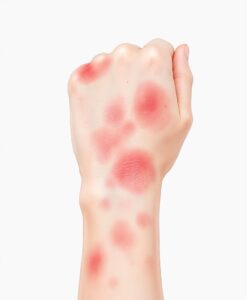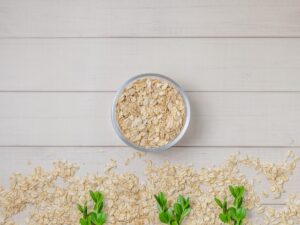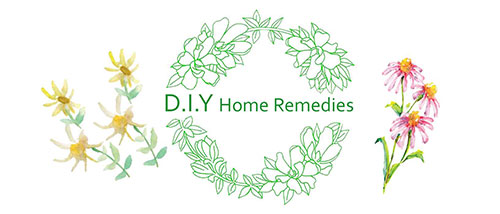Practical Tips for Soothing Inflamed Psoriasis at Home
Ever wrestled with the relentless itch and discomfort of inflamed psoriasis? You’re not alone.
This chronic skin condition affects millions but there are practical solutions you can put into practice at home to soothe those fiery patches.
Simple steps like keeping your skin moisturized and using gentle skin care can make a world of difference.
There are many approaches to easing Psoriasis and I’ve listed a few below. For a more comprehensive guide (some poeple have even claimed to be cured*) you can try these methods
Understanding Psoriasis and Its Symptoms
 Psoriasis isn’t just dry skin—it’s a full-blown autoimmunity party that your body didn’t really RSVP for.
Psoriasis isn’t just dry skin—it’s a full-blown autoimmunity party that your body didn’t really RSVP for.
Think of it as your immune system getting a little too enthusiastic and causing skin cells to multiply faster than usual.
Suddenly, your skin is hosting patches of itchy, red scales, like an uninvited guest overstaying at a party.
What Causes Psoriasis
Let’s talk about what throws the psoriasis party into high gear.
Genetics plays a major role here. If it runs in the family, there’s a chance it might pop up for you, too.
Your immune system also has a starring role. In psoriasis, your immune system mistakenly targets healthy skin cells, leading to faster turnover. But it’s not just about your body’s quirks.
Environmental triggers can strike the match, causing the flakes to fly. These triggers could be anything from cold weather to stress, and even certain medications.
Here’s a quick breakdown of common psoriasis triggers:
- Infections: Particularly strep throat or skin infections.
- Weather: Cold, dry climates can exacerbate symptoms.
- Stress: Emotional stress acts like jet fuel for flare-ups.
- Injuries: Cuts, bug bites, or sunburns can also stir the pot.
Understanding these factors can help you anticipate and manage flare-ups more effectively.
Identifying Symptoms
Recognizing the signs of psoriasis is half the battle and the symptoms can vary widely, You might notice:
- Red patches of skin: These can balloon anywhere, but they love the elbows, knees, and scalp.
- Silvery scales: The hallmark of psoriasis, these scales are the result of skin cells piling up.
- Itching and discomfort: That relentless itch is the DJ you wish would lower the volume.
- Dry, cracked skin: Which might bleed if you scratch too much.
Severity can swing from mild nuisances to severe, life-interfering symptoms.
Keep an eye on these signs, as catching them early can help you manage the symptoms before they take center stage.
Home Remedies to Soothe Inflamed Psoriasis
Psoriasis can sometimes feel like a never-ending exercise class that you didn’t sign up for.
The symptoms, like the relentless itching and irritation, can make comfort seem out of reach. Let’s look at the home remedies that can offer relief and help you take charge of the situation.
Oatmeal Baths
 Soaking in an oatmeal bath can work wonders. Colloidal oatmeal can help soothe the itching and irritation that often accompanies psoriasis.
Soaking in an oatmeal bath can work wonders. Colloidal oatmeal can help soothe the itching and irritation that often accompanies psoriasis.
To try this, just add a cup of finely ground oatmeal to your bathwater. The oatmeal forms a protective barrier on the skin, helping to lock in moisture.
- How to Prepare:
- Grind plain oats into a fine powder.
- Stir the oatmeal powder into a warm bath.
- Soak for 15-20 minutes.
Remember to pat your skin dry gently after the bath, don’t rub.
Epsom Salt Soaks
Epsom salts are another favorite for those battling psoriasis flare-ups.
By adding these to a warm bath, you can help reduce inflammation and remove scales.
The magnesium in Epsom salts works as an exfoliant, easing the rough texture of psoriasis patches.
- Preparation Steps:
- Fill your tub with warm water.
- Add two cups of Epsom salts.
- Soak for 15-30 minutes.
This soak can relieve itching and promote relaxation, making it a worthwhile addition to your skincare routine.
Moisturizing with Natural Oils
When psoriasis strikes, keeping your skin moisturized is crucial.
Natural oils like olive oil and coconut oil are great options. They’re rich in nutrients and can penetrate the skin to provide intense hydration.
- How to Use:
- Apply these oils right after bathing when your skin is still damp.
- For extra soothing, warm the oil slightly before application.
Massaging these oils gently over affected areas can calm inflammation and reduce dryness.
Aloe Vera Applications
Aloe vera is like the Swiss Army knife of natural remedies. Known for its anti-inflammatory properties, it’s an excellent choice for soothing redness and providing moisture where your skin needs it most.
- Application Tips:
- Use fresh aloe vera gel or an unscented product containing aloe.
- Apply a thin layer to the affected areas.
Leave the gel on your skin, allowing it to absorb fully. It acts as a cooling balm, giving your skin some much-needed quiet time.
Cold Compresses
Sometimes, a simple cold compress can be a life-saver. Cold packs reduce swelling and irritation by constricting blood vessels and numbing the skin.
- Easy Steps:
- Wrap ice cubes in a clean cloth or use a commercial cold pack.
- Place it gently on the affected area for 10-15 minutes at a time.
This quick trick can provide immediate relief from the burning sensation that often accompanies psoriasis.
Find out what works for you and add it to your skincare toolbox.
Dietary Considerations
When you think of psoriasis, the connection to diet might not immediately spring to mind, but what you eat can have a profound impact on the severity of your symptoms.
It’s not just about avoiding certain foods; it’s about embracing a diet that promotes overall health and minimizes inflammation. You can read more about the research on diet and psoroasis here
Anti-inflammatory Foods
Incorporating anti-inflammatory foods into your diet is like arming your body with a natural toolkit against psoriasis.
These foods can help reduce inflammation and keep your flare-ups at bay.
Here’s what to put on your plate:
- Fruits and Vegetables: Think leafy greens like spinach and kale, vibrant berries, and the sunny hue of oranges. They’re not just eye candy; they’re packed with vitamins and antioxidants.
- Whole Grains: Swap out refined white bread for whole grain options like brown rice, quinoa, and oats which are high in fiber and help keep inflammation levels in check.
- Fatty Fish: Omega-3-rich fish such as salmon, mackerel, and sardines are your allies here. Their anti-inflammatory properties can soothe your skin from the inside out.
- Nuts and Seeds: Almonds, walnuts, flaxseeds, and chia seeds are excellent for adding healthy fats to your diet.
Incorporating these foods into your meals can be a simple yet effective strategy for managing psoriasis symptoms.
Foods to Avoid
Just as there are foods that soothe, there are those that can poke the psoriasis beast. Steering clear of these dietary triggers can keep your symptoms from escalating.
Here’s a list of common culprits:
- Processed Foods: Ready meals, snacks, and sugary cereals often contain additives that can spark inflammation. These are best left on the supermarket shelf.
- Refined Sugars and Carbohydrates: Foods high in white sugar or refined flour can lead to spikes in insulin, which may exacerbate inflammation.
- Red Meat: Fatty cuts of beef and pork can be inflammatory when consumed in excess. Consider limiting these to reduce the risk of flare-ups.
- Dairy Products: Some people find dairy contributes to their symptoms. It’s worth exploring lactose-free options or reducing consumption to see if your condition improves.
- Alcohol: A known trigger for some, alcohol can interfere with the immune system and potentially worsen symptoms. Moderation is key.
By avoiding these inflammatory foods, you can take a crucial step in managing your psoriasis, helping to calm the skin irritation and keep flare-ups to a minimum.
Lifestyle Modifications to Soothe Inflamed Psoriasis
Psoriasis isn’t just about what happens on the surface of our skin. Lifestyle choices play a substantial role in managing symptoms.
By integrating stress management, skincare, and altering certain habits, we can help ease the discomfort and reduce flare-ups.
Stress Management Techniques
 Stress is like adding fuel to the psoriasis fire. When we’re stressed, our body’s reaction can trigger or worsen flare-ups. But using techniques like yoga and meditation can help
Stress is like adding fuel to the psoriasis fire. When we’re stressed, our body’s reaction can trigger or worsen flare-ups. But using techniques like yoga and meditation can help
- Yoga: This isn’t just about bending or stretching. It engages breathing with movement and fosters mindfulness, which can lower stress levels.
- Meditation: Sitting quietly and focusing the mind can dramatically reduce stress. Even a few minutes a day helps.
- Deep Breathing: Taking slow, deep breaths can calm the mind and body. It’s a quick way to manage stress whenever it hits.
These techniques might seem small, but they’re mighty. Consistency is key. Try making them a regular part of your day, and notice the difference in both stress and skin.
Regular Skincare Routine
Building a skincare routine is like setting the foundation for a house. It needs to be solid to weather any storm. For psoriasis, keeping skin moisturized and protected is vital.
- Moisturizers: Look for creams or ointments with ingredients like shea butter or petrolatum. They lock in moisture and form a barrier against irritants.
- Gentle Cleansers: Choose ones that don’t strip the skin. Fragrance-free is your friend.
- Daily Routine: Consistency is the goal. Morning and night applications will give your skin the best defense.
Infusing your routine with these basics can help fend off dryness and irritation, making these fiery patches less troublesome.
Avoiding Skin Irritations
Steering clear of potential skin irritants is as crucial as the rest of the plan. A simple shift in daily habits can keep your skin happy.
- Limit hot showers: They can strip the skin of natural oils. Opt for lukewarm water and keep it brief.
- Be gentle: Pat skin dry instead of rubbing. It minimizes irritation that can lead to flare-ups.
- Mind your clothing: Choose soft, breathable fabrics. They reduce friction and allow your skin to breathe.
These may seem like minor changes, but they lay the groundwork for happier skin.
Conclusion
Managing psoriasis requires a proactive approach to care and comfort. Home remedies like oatmeal baths, Epsom salt soaks, and gentle moisturizers can make a real difference in soothing inflamed skin.
Understanding personal triggers and maintaining a balanced diet rich in anti-inflammatory foods form the backbone of effective psoriasis management.
It’s important to stay in tune with your body. Consulting with healthcare providers can lead to personalized plans that address your unique needs and challenges.
Your journey with psoriasis is personal, but you’re not alone.
